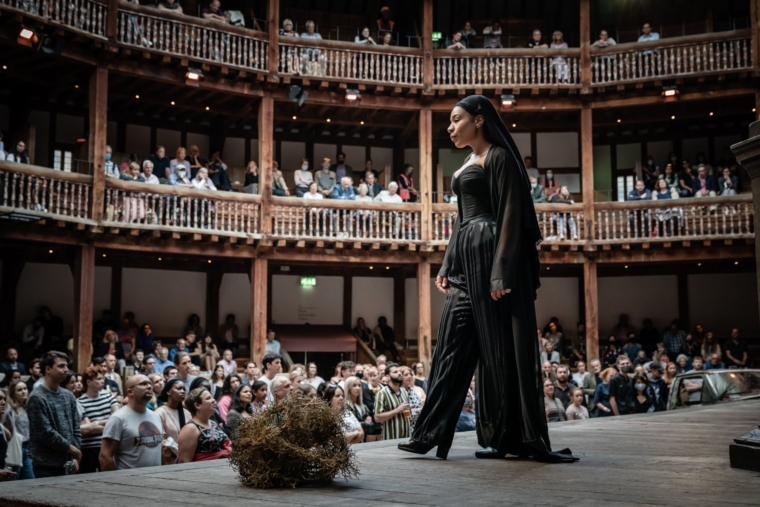The Twelfth Night press night fell on a day of rain so torrential that it threatened to give the audience at the open-air Globe a literal insight into how Viola feels when she is shipwrecked at the start of the comedy. Never had the line “The rain it raineth every day” been so squelchily fitting.
Miraculously, the deluge stopped in time for the performance – but Sean Holmes’s fine production nevertheless channelled the play’s deliciously melancholic edge, as well as capturing its comedy in abundance.
Shakespeare’s mistaken-identity romp has noblewoman Viola shipwrecked in the land of Illyria, where she disguises herself as a man and lands a job for Duke Orsino.
In this production, we find ourselves in an Americana-infused version of the region, where a superlative band led by violinist Preetha Narayanan brings a rich, soulful musicality to the evening. Along with playing their instruments, they accompany snatches of song from the actors with plaintive, pared-back vocal harmonies.

Into this evocative setting arrives a scene-stealing Globe artistic director Michelle Terry as Viola. She gleefully mines the comedy in Viola’s overexaggerated masculinity as she tries to maintain her male disguise, and her endearing portrayal makes it easy to understand why both Olivia (Shona Babayemi) and Orsino (Bryan Dick) fall for her.
Nadine Higgin and George Fouracres both gave very funny performances in A Midsummer Night’s Dream earlier in the summer (the same company, plus Terry, performs here). They are highly entertaining in this production too, with Fouracres an enjoyably deadpan Sir Andrew Aguecheek and Higgin an irreverent, effervescent Sir Toby Belch.

Elsewhere, Victoria Elliott proves to be an utterly stupendous Feste: her terrific singing of James Fortune’s compositions and impish wit make her every inch the fool even before you’ve clocked the jaunty red letter “F” embroidered on her baseball cap.
Sophie Russell amuses as a fittingly overweening Malvolio, who is one minute the straight-laced steward, and the next a yellow-stockinged ball of desire, as she reads Olivia’s supposed declaration of love and starts cavorting around the stage.

Jean Chan’s derelict fairground of a set deftly signals that this is a place of loss, with Olivia mourning for her brother, but also somewhere anarchic and transformative. At the very end of the play, as the actors are taking their bows, Olivia and Viola slip into a smouldering, secretive dance that subverts the sense of order being restored by their marriages (to Sebastian and Orsino respectively), and makes clear that attraction still crackles between them.
More could have been made of their chemistry during the play, but it still injects a final parting shot of yearning in a superb production that is suffused with desire and longing.

